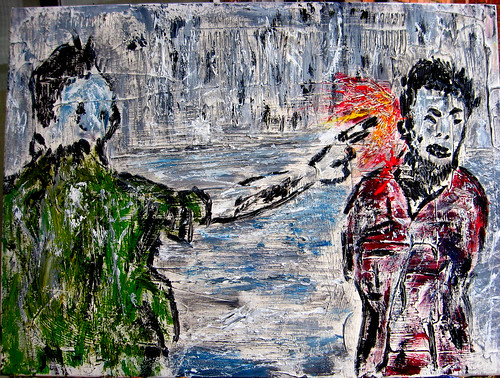To his wife, Linda:
'Right now I'm pretending that I'm talking to you'. (p.60)
'...one wonders how much the human body can stand'. (p.61)
'Everyone in the field wants the million-dollar wound...' (p.69)
'We found ... where the [VC] had been ... and - get this - at one of the tables, six hands of cards'. (p.69)
'I told my men ... the first ... to kill a dink ... I would buy them a bottle of whiskey. They can't wait to kill one of them now'. (p.70)
'My RTO ... was crying ... letters ... from ... his wife ... said she didn't care whether he came back or not ... It is bad enough over here. But when your wife writes shit like that it completely destroys a man'. (p.171)
This last quote appears in the 'World of Hurt' chapter of the text. It is only at this point that Edelman reveals to the reader that Fred and Linda have 'since divorced'. He has purposefully organised the plot in this way to enhance our general understanding of the soldiers' experiences and reveal a main idea in the text that pertains directly to this chapter's title. What impacts do you think Edelman is trying to have on the reader by only mentioning this detail at this particular point of the narrative? Please leave your responses as comments.





